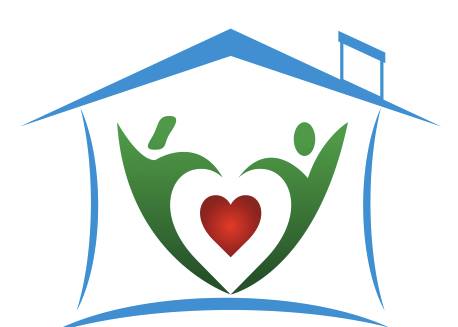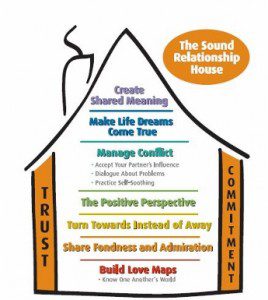 Substance abuse can intrude into and erode a relationship like an unwanted guest. Therefore, I have chosen the metaphor of the “uninvited-invited guest” to reflect the dialectic between unwanted intrusion and welcome invitation of substance abuse in an intimate relationship.* At times, substance abuse enters into a relationship like an uninvited guest. Other times, it is invited in by one, and unwanted by the other. Yet other times, it is invited in by both. However it enters, it is like an unwanted guest that stays too long and interferes in the relationship.
Substance abuse can intrude into and erode a relationship like an unwanted guest. Therefore, I have chosen the metaphor of the “uninvited-invited guest” to reflect the dialectic between unwanted intrusion and welcome invitation of substance abuse in an intimate relationship.* At times, substance abuse enters into a relationship like an uninvited guest. Other times, it is invited in by one, and unwanted by the other. Yet other times, it is invited in by both. However it enters, it is like an unwanted guest that stays too long and interferes in the relationship.
In his Sound Relationship House Theory, John Gottman uses the metaphor of the house to describe the elements of a sound relationship. My intention here is to explore the metaphor of the uninvited-invited guest in terms of the Sound Relationship House in order to explore the effects of substance abuse on an intimate relationship. I also suggest how the externalizing metaphor of the uninvited-invited guest might be used in couples treatment for substance abuse.
The Uninvited-Invited Guest and the Sound Relationship House
The first three levels of the Sound Relationship House are the friendship basis of the relationship and constitute the foundation of a strong relationship. The first level of the house is Build Love Maps. This entails how well partners know one another: their inner psychological world, their worries, stresses, joys, and dreams. The second level is Share Fondness and Admiration. This level focuses on the amount of affection and respect within a relationship. The third level is Turn Towards in everyday moments. The small moments of everyday life are actually the building blocks of relationship. Partners have the opportunity to either turn toward, turn away, or turn against bids for connection.
Like an interfering and meddlesome in-law, relative, or ex-partner, the uninvited-invited guest of substance abuse can erode the first three levels of the Sound Relationship House. If substance abuse has been a guest in the relationship from the start, chances are that Love Maps and true Fondness and Admiration will be weak. If substance abuse entered the House later, chances are that they will be deteriorated by the constant interference of the uninvited-invited guest. Furthermore, instead of turning towards bids for connection, chances are that partners will be turning away from or against one another, sometimes quite literally, abandoning each other while going on a drinking or drug-using binge.
The fourth level of the Sound Relationship House is the Positive Perspective. The lower three levels of the Sound Relationship House determine whether this level is positive or negative. This level is what it feels like in the relationship. With the erosion of the first three levels of the House due to the interference of the uninvited-invited guest of substance abuse, chances are that couples where substance abuse is present are caught in the Negative Perspective, which, in turn, has a negative impact on problem-solving discussions and the success of repair attempts during conflict.
The fifth level of the House is Manage Conflict. The uninvited-invited guest of substance abuse tends to both impair the ability to manage conflict and to further escalate it, both because of the effects of substance abuse on the brain and because of the deterioration of the relationship caused by substance abuse. It is a well-known fact that intimate partner violence often occurs in the context of substance abuse and as a result of the inability to manage conflict in a healthy manner while intoxicated. Substance abuse is like an unwanted guest that interferes in the relationship, further exacerbates conflict, and becomes a further source of conflict.
The sixth and seventh levels of the Sound Relationship House are Make Life Dreams Come True and Create Shared Meaning. A crucial aspect of any relationship is to create an atmosphere that encourages each person to talk honestly about his or her dreams, values, convictions, and aspirations. Create Shared Meaning is the attic of the house where our important dreams, narratives, myths, and metaphors about the relationship find a home. It is nearly impossible to make life dreams come true or create shared meaning when the uninvited-invited guest of substance abuse enters the relationship house. Just as possessions and treasures that might be guarded in the attic might be sold to support the addiction, the hopes, dreams, and aspirations of the partner and of the relationship are often sold away and the attic is one day found to be empty.
Finally, the two walls of the Sound Relationship House are Trust and Commitment. Obviously, trust and commitment, like the levels of the house, are weakened or destroyed by substance abuse. Substance abuse is often experienced as a betrayal of trust and commitment, as if one of the partners were to have an affair with the uninvited-invited guest. Effectively, substance abuse becomes the third person in the relationship, violating the trust and commitment of the primary relationship and tearing down the retaining walls that support a sound relationship house.
The Uninvited-Invited Guest and Couples Treatment for Substance Abuse
My suggestion is that the metaphor of substance abuse as the uninvited-invited guest be used as a heuristic tool in both the deconstruction of the effects of substance abuse and in the reconstruction of the relationship. The levels of the Sound Relationship House and corresponding interventions for each can be used to rebuild the relationship. In the case of couples in recovery, special attention needs to be paid to the uninvited-invited guest of substance abuse throughout the treatment process. If due attention is not paid, the unwanted guest can easily return through a back door or an open window (or may have even kept a key to the house). Borrowing from the late Shirley Glass’ metaphor of “walls and windows” (2003) to protect from infidelity, the couple in recovery needs to be attentive to the possible return of the uninvited-invited guest of substance abuse and to build solid walls against it and open up windows to each other in order to communicate their recovery needs and challenges. My hope is that the use of the extended metaphor of the uninvited-invited guest throughout the treatment and recovery process might help couples in recovery to rebuild their relationship and maintain their sobriety and recovery.
References
Glass, S. (2003). Not “Just Friends”: Rebuilding Trust and Recovering Your Sanity After Infidelity. New York, NY: Free Press.
Gottman, J.M. (1999). The Marriage Clinic: A Scientifically Based Marital Therapy. New York, NY: W.W. Norton & Company.
Gottman, J., & Schwartz Gottman, J. (2013). The Art & Science of Love: A Weekend Workshop for Couples. Seattle, WA: The Gottman Institute.
© 2025 Michael Brown, MSC, LMFT, dba Happy Couples Healthy Communities

